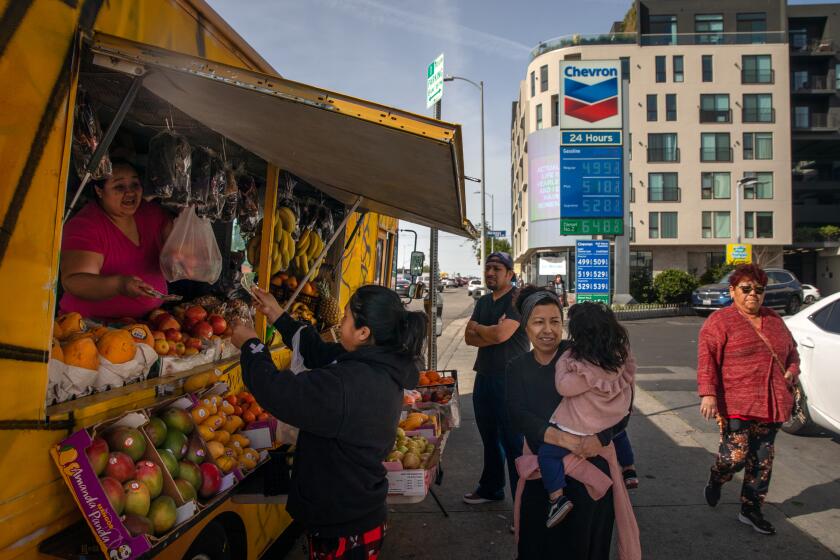Rapper 50 Cent is shaking his head over L.A.’s zero-bail policy: ‘Watch how bad it gets’

- Share via
Rapper Curtis “50 Cent” Jackson is no fan of L.A. County’s reinstated zero-bail policy. “LA is finished,” he said in an Instagram post.
In late May, a Los Angeles County judge issued a preliminary injunction against cash bail for people suspected of most nonviolent misdemeanors who had been arrested but not yet arraigned.
In the cash bail system, bail amounts are set by a predetermined schedule, not by a person’s ability to pay. Those unable to pay bail or secure a bond must remain in custody.
The injunction stemmed from a lawsuit filed on behalf of several people who had been arrested and experienced “dismal” conditions while in detention because they could not pay bail.
In an Instagram post from last week, Jackson said, “LA is finished watch how bad it gets out there. SMH [shaking my head]”
The comment accompanied a May 23 KNTV report about the development, and Jackson tagged his cognac and Champagne companies in the post.
The four robberies of street vendors Sunday appear to be part of an increase in such crimes in the last few months.
Opponents of ending cash bail say the practice leads to a rise in crime rates and results in more suspects failing to appear for arraignment.
But under Los Angeles County’s zero-bail policy that went into effect shortly after the start of the COVID-19 pandemic to reduce jail overcrowding, failure-to-appear and re-arrest rates of those released dropped or remained consistent compared with pre-pandemic levels.
The policy coincided with a spike in crime in Los Angeles, but crime also rose at similar rates across the country during the pandemic, including in places where zero-bail policies were not instituted.
The COVID-era zero-bail policy ended last summer.
In his opinion issuing the injunction, Judge Lawrence Riff called the cash bail system “a clear, pervasive and serious constitutional violation.”
Under the injunction, the zero-bail policy for people arrested on suspicion of most misdemeanors was reinstated for 60 days while Los Angeles County and the lawsuit’s plaintiffs worked together to put forward a permanent plan. If that program is approved by the judge, it would take effect on July 17.
More to Read
Sign up for Essential California
The most important California stories and recommendations in your inbox every morning.
You may occasionally receive promotional content from the Los Angeles Times.












